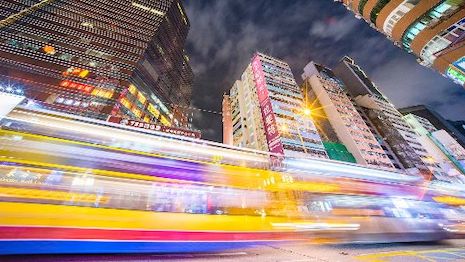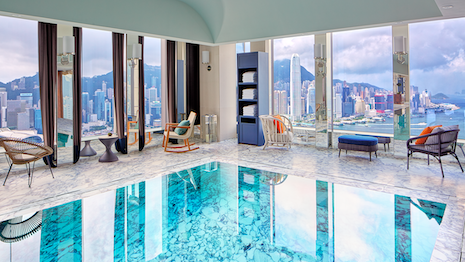 Hong Kong is a key market for luxury watches, real estate, travel and tourist, fine dining, and financial services. Image credit: Agility Research & Strategy
Hong Kong is a key market for luxury watches, real estate, travel and tourist, fine dining, and financial services. Image credit: Agility Research & Strategy
By Amrita Banta
Hong Kong, this bustling metropolis, is now in a transition period, facing both challenges and opportunities that will redesign the future of the city in the years to come.
This is not new: Hong Kong has always thrived on change. The city has been able to reinvent itself previously.
From its start as a trading port and gateway to China, the city evolved to become one of the most important global financial centers and tourist destinations. Its strength derived from being able to straddle two worlds: an open and International city, yet fully able to leverage China as one of its growth engines.
The past two years have brought profound challenges to its economic model.
The Hong Kong luxury retail scene has suffered from both the protests in 2019 [against the now-implemented security law] and the recent COVID-19 crisis, both resulting in a steep decline of inbound travelers. As a result, several global and local brands are adjusting their store network strategy to serve the local market, rather than Chinese tourists.
Lower tourist arrivals have hit the tourism and entertainment industry hard.
While travel will resume at some point in the future, for now the economy will need to rely on local affluent consumers’ spending power and captive wealth from travel budgets that are not being spent.
 Hong Kong has taken a hit with the a double-whammy of street protests over the now-imposed security law and fallout over COVID-19 restrictions. Image credit: Agility Research & Strategy
Hong Kong has taken a hit with the a double-whammy of street protests over the now-imposed security law and fallout over COVID-19 restrictions. Image credit: Agility Research & Strategy
Hong Kong local affluent and HNW consumers
Hong Kong GDP per-capita is one of the highest in the world, at U.S. $48,000. The city is home to a large group of affluent and HNW individuals, sophisticated consumers of luxury products and experiences.
Despite their wealth, they are not immune to the effect of the COVID-19 on the overall economy. Our TrendLens 2020 study has investigated how the current situation has changed their mindset, priorities and outlook for the future. Here is an extract with some interesting insights.
Gender and wealth divide
Affluent Hong Kong consumers are still positive about their overall economic wellbeing in the next 12 months.
Our data shows that men are more optimistic than women when looking at their future, with 45 percent of them believing that their economic well-being will increase in the next year, versus only 31 percent of women believing so. We believe the buoyant stock market and many recent listings is fueling some of this optimism.
The divide is even more apparent when asked if they expect their disposable income to go up, with 51 percent of men believing their income will increase, versus only 33 percent of women believing the same.
This translates in women having a lower propensity to spend on luxury products and experiences, with 42 percent of Hong Kong affluent women expecting to decrease their luxury purchases versus only 21 percent of men.
The same divide is clearly visible across wealth levels, with 43 percent of HNWIs believing their economic well-being will increase in the future, versus only 35 percent of affluent consumers who believe the same.
This divide will have important implications for luxury brands.
Our data says that luxury categories for men, such as watches, for example, will recover faster than categories that predominantly cater to women. The same is true for luxury brands targeting HNWIs, who show higher propensity to consume than affluent consumers.
 Broad vista: Rosewood Residences Hong Kong, pool level. Image courtesy of Rosewood Hotels & Resorts
Broad vista: Rosewood Residences Hong Kong, pool level. Image courtesy of Rosewood Hotels & Resorts
Affluent share of wallet
How has affluent spending changed after COVID-19? Categories such as fine dining, due to many enticing offers from restaurants to attract customers and in-home electronics, due to longer time spent at home, increased during the post-COVID-19 period, while spending for all other categories declined or remained stable.
Share of wallet for travel declined (22 percent versus 18 percent pre-COVID-19), but not as much as expected, due to consumers shifting their spend on domestic staycations.
Seventy percent of Hong Kong affluent individuals believe that the value of their property investment will stay the same or increase in the next few years.
Since a large component of Hong Kong affluent financial wealth is invested in real estate, their faith in their investment portfolio bodes well for the local economy.
Priorities and concerns in time of COVID-19
Unsurprisingly, given the COVID-19 crisis, personal health, family’s health and security, and children’s future top Hong Kong affluent consumers worries, followed by the political and economic situation of Hong Kong.
As a result, compared to pre-COVID-19, significantly more affluent Hong Kongers have adjusted their investment portfolio, with 49 percent planning to make new investments in the next six month (versus 39 percent in January) and have purchased new insurance protection in the past 6 months (41 percent versus 30 percent in January).
Digital banking has taken off: due to closure of bank branches and shortening of service hours in the past six months, many have used mobile apps for banking transactions (51 percent versus 39 percent in January).
Luxury definition remains unchanged
Affluent Hong Kong consumers continue to conceive luxury as expensive but with guaranteed quality and for self-reward.
In this post-COVID-19 time, luxury has become even more of a way to reward themselves, with 53 percent of respondents highlighting that this is the main reason they buy luxury, versus 39 percent pre-COVID-19.
Importance of connecting with consumers
The real winners in the post-COVID-19 crisis are brands across categories that are able to connect with affluent and HNW consumers.
The list is long, from HSBC, Standard Chartered, DBS and AIA, among the top brands in financial services; to Chanel, Gucci, Dior and Zara, among fashion brands; Tiffany, Chow Sang Sang, Cartier and Rolex, among jewelry and watches; and SK-II, Shiseido and Estée Lauder, among beauty brands.
These brands connected in special ways with Hong Kong affluent consumers and have built loyalty that will pay back in the years to come.
 Amrita Banta
Amrita Banta
Amrita Banta is cofounder and managing director of Agility Research & Strategy, Singapore. Reach her at [email protected].
